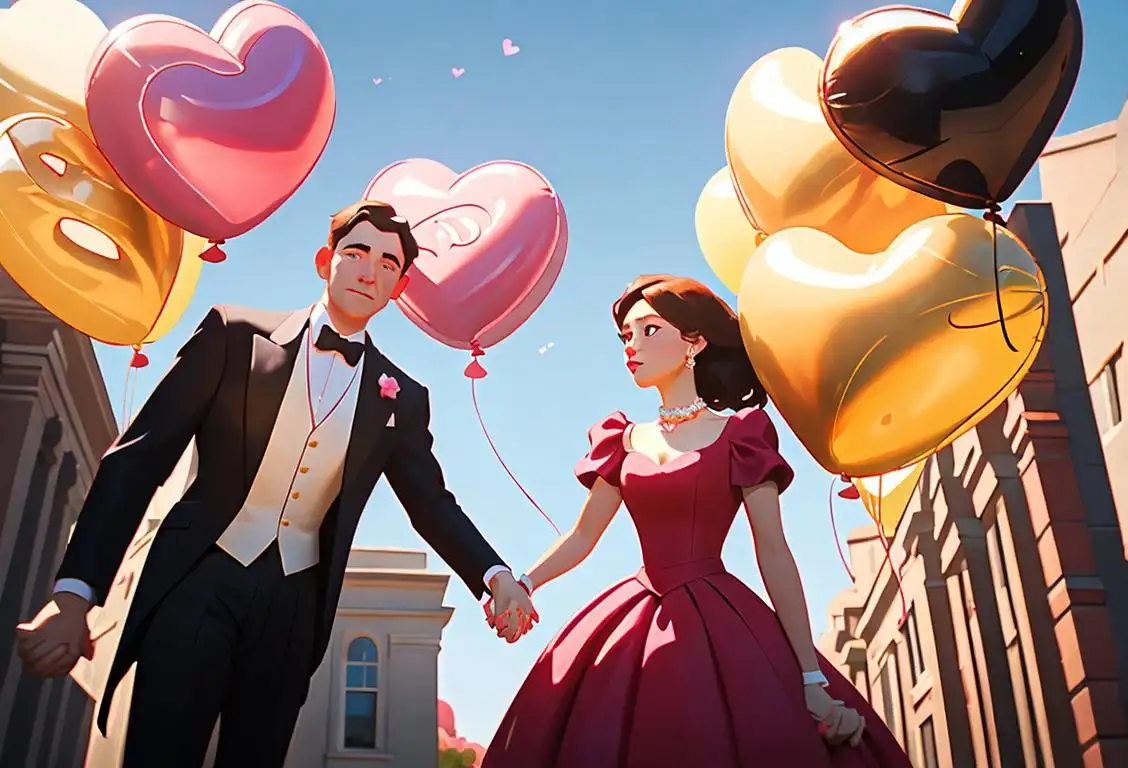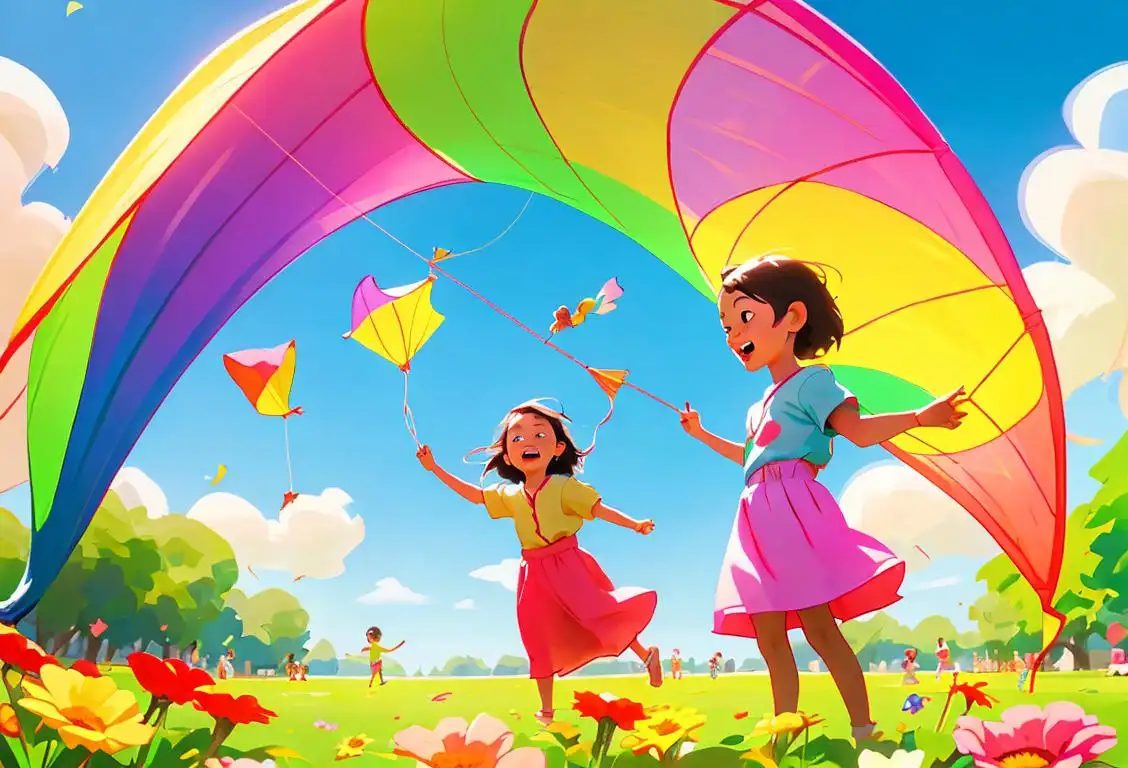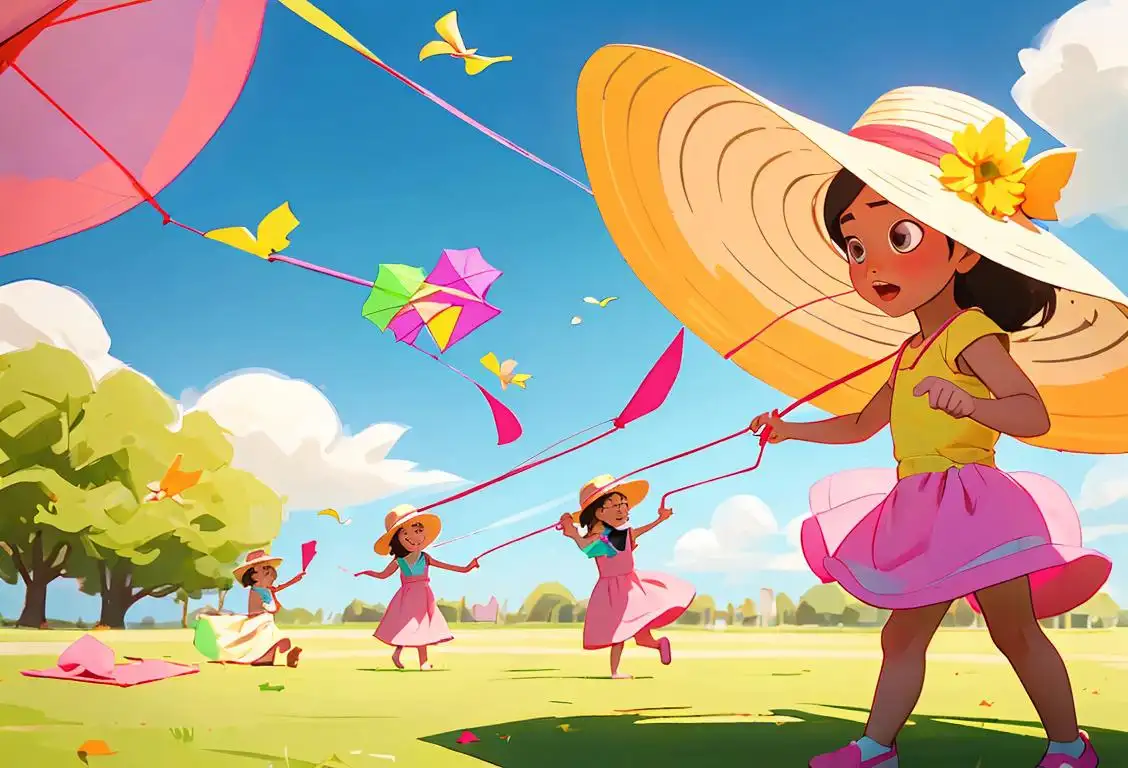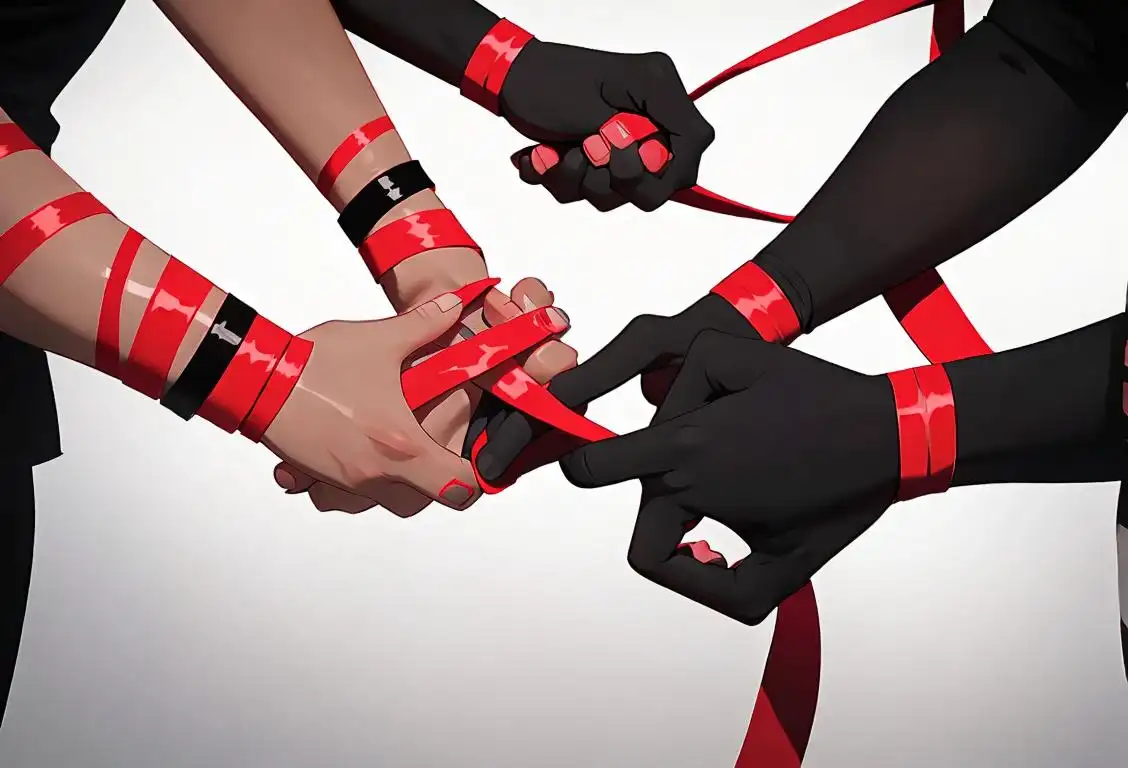National Ilove You Day

Hey there, lovebirds! Get ready to celebrate National I Love You Day with a bang! This special day, which has gained quite a bit of online attention with 436 mentions, is all about expressing your heartfelt affection for those near and dear to you. So, grab your romantic musings and let's dive into the enchanting world of love!
When is Ilove You Day?
It's national ilove you day on the 28th October.
The Internet History of National I Love You Day
Back on October 28, 2015, love was in the virtual air as people took to social media to shower their loved ones with affectionate messages and declarations of love. Whether it was posting cheesy love quotes, sharing adorable couple pictures, or simply sending a heartfelt text to a significant other, the online world was buzzing with romantic vibes.
Since then, National I Love You Day has become an annual celebration of love and all things mushy. It serves as a reminder to express your love to your partners, friends, family, and even pets!
Expressing Love in the Digital Age
In this age of technology and emojis, expressing love in creative ways has never been easier. From heartfelt love letters to cute GIFs and heart-warming videos, there are countless ways to show your affection online. So, why not go all out on National I Love You Day and shower your loved ones with virtual hugs and kisses?
Send your partner a romantic playlist, surprise your friends with a heartfelt video montage of your favorite memories together, or even dedicate a social media post to your adorable pet. The possibilities are endless!
A Day for Love, Fun, and Remembrance
National I Love You Day is not only about romantic love but also about celebrating love in all its forms. It's a day to cherish all the special relationships in your life, whether it's the love between siblings, parents and children, or best friends.
Aside from the traditional expressions of love, you can also celebrate this day by indulging in activities that bring joy to your loved ones. Plan a surprise picnic, cook a delicious meal together, or embark on an adventure that will create lasting memories.
Did You Know?
Did you know that the phrase 'I love you' is believed to have originated from the ancient Romans? They used to say 'amo te' to express their affection, which evolved into the famous three words we use today. So, next time you say 'I love you,' remember that you're continuing a tradition that dates back centuries!
History behind the term 'Ilove You'
1415
The Birth of 'I Love You'
The term 'I love you' originated during the Middle Ages in the 15th century. It was derived from the Old English word 'lufu,' meaning love, and 'ye,' which was a term used to address others respectfully. These two words were combined to form the phrase 'I love you,' expressing deep affection and endearment towards another person.
1500s
Shakespearean Inspiration
During the Elizabethan Era in the late 1500s, William Shakespeare's romantic plays had a profound influence on the English language. Shakespeare's work popularized the expression of love in literature and theater, including the phrase 'I love you.' This phrase began to gain recognition and became associated with expressing deep affection.
1775
Origins of the term 'I love you'
The phrase 'I love you' can be traced back to the late 18th century when it started to gain popularity as an expression of deep affection. It is believed to have originated from the combination of the words 'I' and 'love', which were commonly used to express strong emotions during this period.
1765
The Rise of Romantic Literature
During the 18th century, the phrase 'I love you' gained prominence with the advent of romantic literature. Romantic poets like William Wordsworth, John Keats, and Lord Byron popularized the declaration of love through their heartfelt verses and writings. This literary movement helped to strengthen the cultural significance of 'I love you' as a powerful expression of romance and emotional connection.
1875
'I love you' gains romantic connotations
By the late 19th century, the term 'I love you' had evolved to encompass a romantic meaning. It became increasingly associated with romantic relationships and declarations of love between two individuals. This shift in meaning further solidified the phrase as an endearing expression of romantic affection.
18th Century
Rise of Romantic Literature
In the 18th century, the Romantic movement swept across Europe, emphasizing intense emotions and passionate love. Romantic literature, such as the works of Johann Wolfgang von Goethe and Lord Byron, further popularized the expression 'I love you' as a way to convey profound affection and devotion between individuals.
1900
Mainstream popularity and cultural impact
In the early 20th century, the term 'I love you' gained widespread popularity and became deeply ingrained in popular culture. It began to appear in literature, music, and cinema, further cementing its significance as the ultimate expression of love and devotion. The phrase became a powerful symbol of deep emotional connection between individuals.
19th Century
Valentine's Day Influence
By the 19th century, Valentine's Day became increasingly popular in Western cultures as a day to express love and affection. The tradition of exchanging handwritten valentine cards intensified the use of 'I love you' as a heartfelt declaration. People began to associate the phrase more strongly with expressing romantic love towards their partners.
1837
Courting and Victorian Etiquette
In the Victorian era, which began in 1837, courtship practices became more formalized. Expression of love was subject to strict societal rules. The term 'I love you' was commonly used during this time to convey one's feelings in a subtle and gentlemanly manner. Love letters and romantic gestures often featured the phrase, reflecting the importance of polite and respectful courtship rituals.
20th Century
Mass Media and Pop Culture
With the rise of mass media in the 20th century, 'I love you' captured the attention of popular culture. Movies, music, and literature embraced the phrase, solidifying its status as a widely recognized expression of deep affection. Love songs, in particular, became a medium through which 'I love you' gained further prominence and sparked countless romantic moments.
1925
Rise of Mass Media and Pop Culture
With the advent of radio, cinema, and later television, popular culture began to heavily influence the usage and understanding of 'I love you.' Romantic movies, songs, and advertisements played a significant role in promoting the phrase and its emotional impact on audiences. The rise of mass media further solidified the term as a universal declaration of love.
1965
Modernization and technological influence
With the rise of technology and the advent of telecommunication, the term 'I love you' took on new dimensions. The emergence of telegrams, telephone calls, and later electronic messaging platforms allowed people to convey their love remotely, making the phrase even more widely shared. This technological influence further popularized the use of 'I love you' as a constant affirmation of love and affection.
2000
Globalization and linguistic variations
In the new millennium, as globalization connected people from different cultures and languages, 'I love you' transcended its English origins. People in different parts of the world started adapting the phrase to their own languages, resulting in beautiful variations of expressing love. From 'Je t'aime' in French to 'Ich liebe Dich' in German, the sentiment of 'I love you' became a universal expression, crossing linguistic barriers.
1965
'I Love You' Goes Mainstream
During the 1960s, the phrase 'I love you' transitioned from being primarily associated with romantic relationships to a broader usage in everyday conversations. The cultural upheavals of the era, including the sexual revolution and counterculture movements, led to a more open and expressive society. 'I love you' became a common phrase exchanged between friends, family members, and acquaintances, emphasizing the importance of emotional connections in a changing world.
21st Century
Digital Love and Social Media
In the digital age, 'I love you' has transcended traditional modes of communication. The rise of social media platforms and messaging apps has made it easier than ever to express affection. The phrase has found a new home in text messages, tweets, hashtags, and online interactions, becoming an integral part of modern relationships and dating culture.
2000
Digital Age and Love Online
In the 21st century, the proliferation of technology and the rise of social media platforms transformed the way 'I love you' is expressed. People started declaring their love publicly and more frequently through digital means. Text messages, emails, and social media posts provided new avenues for communicating affection. The phrase 'I love you' took on a whole new dimension of immediacy and accessibility, shaping modern relationships and the way love is expressed in the digital age.
Present
Continued significance and evolvement
Today, 'I love you' remains one of the most powerful and widely understood expressions of love. It continues to be a fundamental component of intimate relationships, celebrated in literature, movies, and songs across cultures. The phrase has also found its way into modern digital communication, with shorthand versions like 'ILY' or even emojis symbolizing affection. Despite changes in technology and evolving linguistic variations, the core message of love behind 'I love you' remains timeless.
Did you know?
Did you know that the phrase 'I love you' is believed to have originated from the ancient Romans?Tagged
romance fun loved ones remembranceFirst identified
17th October 2015Most mentioned on
28th October 2015Total mentions
436Other days
Observation Of Day
Patronage Over The Day
Diaspora Day
Ojd Day
Ilove You Day
Rd Day
Suicide Prevention Month Day
Awareness Day
Security Day
Black Hiv And Aids Awareness Day








